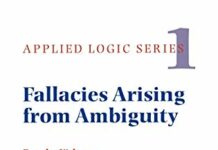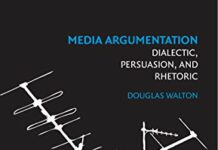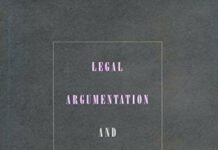
Ebook Info
- Published: 2014
- Number of pages: 320 pages
- Format: PDF
- File Size: 21.81 MB
- Authors: Douglas Walton
Description
A study of the role of abductive inference in everyday argumentation and legal evidenceExamines three areas in which abductive reasoning is especially important: medicine, science, and law. The reader is introduced to abduction and shown how it has evolved historically into the framework of conventional wisdom in logic. Discussions draw upon recent techniques used in artificial intelligence, particularly in the areas of multi-agent systems and plan recognition, to develop a dialogue model of explanation. Cases of causal explanations in law are analyzed using abductive reasoning, and all the components are finally brought together to build a new account of abductive reasoning. By clarifying the notion of abduction as a common and significant type of reasoning in everyday argumentation, Abductive Reasoning will be useful to scholars and students in many fields, including argumentation, computing and artificial intelligence, psychology and cognitive science, law, philosophy, linguistics, and speech communication and rhetoric.
User’s Reviews
Reviews from Amazon users which were colected at the time this book was published on the website:
⭐The author, a philosophy professor, engages in a thoughtful and detailed discussion of abduction, a form of reasoning that is different from deductive reasoning and inductive reasoning.In an ambitious first chapter, the author: (1) explains what abductive reasoning is, and how it is often equated with inference to the best explanation; (2) distinguishes abductive reasoning from deductive reasoning and inductive reasoning; (3) shows how abductive reasoning is commonly used in scientific analysis, medicine, and legal reasoning about evidence; (4) compares abductive reasoning with other forms of probabilistic or plausible arguments; and (5) discusses how abduction can be viewed from the perspective of argumentation schemes.In the second chapter, the author contends that abduction can be better understood and more effectively used if explanations are viewed as dialogues between two parties or agents. In this chapter, the author relies on eclectic examples from: (a) the history and philosophy of science; (b) expert systems in artificial intelligence; (c) the reasoning used in historical explanations and legal explanations; (d) explanations in conversations and teaching situations; (e) explanations by witnesses in court; (f) modern philosophy; (g) speech act theory; and (h) argumentation theory.In the third chapter, the author relies heavily on ideas and concepts from artificial intelligence and legal reasoning to present a procedural model of rationality, which posits reasoning within a framework of dialogues that involve practical reasoning. The author notes some limitations of traditional deductive reasoning and inductive reasoning, and then contends that the existence of those limitations supports his position that explanation must be evaluated from a perspective of rationality that goes beyond considering only whether (a) arguments/explanations are true or false, or (b) consistent or inconsistent.In the fourth chapter, the author contends that: (1) many arguments have the form of deductive modus ponens inferences, but are not deductively valid; (2) there is a need for a nondeductive, defeasible form of modus ponens inferences; and (3) abductive reasoning can help with the formulation of valid defeasible forms of modus ponens inferences. This chapter provides some preliminary analysis that presages the next chapter.In the fifth chapter, the author contends that: (1) neither deductive reasoning nor inductive reasoning has been able to satisfactorily explain or adequately support causal reasoning; (2) abductive reasoning can be used to clarify and strengthen causal reasoning; and (3) causal reasoning is better understood as abductive in nature, not deductive or inductive in nature. In support of these contentions, the author uses examples from causal reasoning in the law, medicine, and science.In the sixth chapter, the author discusses how abduction can be viewed as a form of inference to the best explanation conducted in the form of a dialogue that proceeds through four phases. The author also contends that the form of the inquiry or investigation (e.g., legal or medical) greatly affects what constitutes a better explanation.In the seventh and final chapter, the author identifies some unsolved problems with abduction and suggests several ideas about how to address and work toward resolving those unsolved problems. The author does not claim to solve the identified problems, but contends his ideas suggest lines of reasoning and analysis that could help solve them.The book is scholarly and technical in nature, and not written for casual reading. The book could be of interest to persons trained in, or studying, philosophy, formal or informal logic, the scientific method, medical diagnosis, or law. Anyone interested in learning how to better understand, analyze and evaluate arguments that use abductive reasoning or inference to the best explanation should read this book. Because of the technical nature of the author’s analysis, some prior knowledge about or exposure to philosophical analysis, logical reasoning, scientific reasoning, medical diagnosis, or legal reasoning would be helpful to the reader. Also, the author’s use of various examples from artificial intelligence to illustrate and elaborate on his contentions and arguments makes the book of possible interest to readers studying or working in the field of artificial intelligence.
⭐Superb book on abduction.
⭐Brilliant research
⭐Si tratta di un libro che affronta un tema importante e spesso trascurato. Ho acquistato il volume usato a un prezzo ragionevole. Il volume è in ottime condizioni al netto di alcune sottolineature a matita facilmente eliminabili
⭐
Keywords
Free Download Abductive Reasoning in PDF format
Abductive Reasoning PDF Free Download
Download Abductive Reasoning 2014 PDF Free
Abductive Reasoning 2014 PDF Free Download
Download Abductive Reasoning PDF
Free Download Ebook Abductive Reasoning





